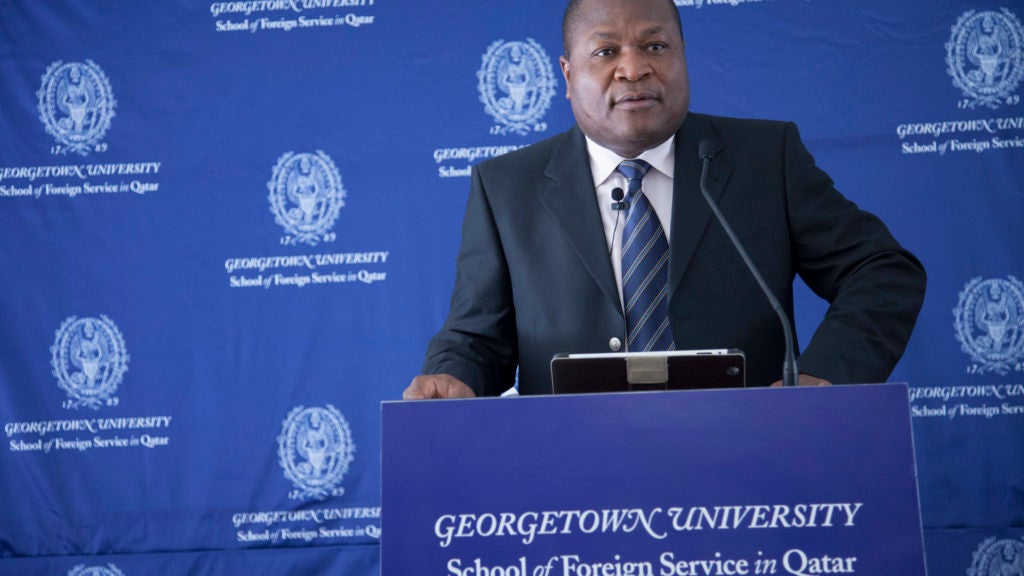Georgetown SFS-Q Students Meet Nigeria’s Senior Advocate

Georgetown University School of Foreign Service in Qatar (SFS-Q) welcomed Prince Adetokunbo Kayode, Senior Advocate of Nigeria and Executive Vice Chairman of the Center For Peace and Security In Africa, to share his insights on “The Future of One Nigeria”; to an audience at the SFS-Q campus on Monday.
SFS-Q took the opportunity to host Prince Adetokunbo Kayode as part of the university’s on-going commitment to offer an open platform for knowledge sharing and provide both its students and the community at large, an opportunity to engage with issues facing the local, regional and international community.
Charting the colorful history of Nigeria, Prince Adetokunbo Kayode presented the road that led to Nigeria’s current challenges and internal conflicts, and importantly the prediction that unless corruption is reduced and government systems become more efficient to support the vast needs of the people in the years to come it will become a failed state.
A country with significant importance and potential, Nigeria has vast mineral resources, the largest population in sub-Saharan Africa, as well as a leading economic-political role in West Africa with its substantial contributions to international peacekeeping. Despite this, it faces unmanageable problems including ethnic, religious, and regional identities that are lessening full allegiance to the state.
Prince Adetokunbo Kayode spoke about the increasing poverty, corruption, and growing violence in the north and south, coupled with the government’s inability to resolve the tensions, all of which suggest a possible dissolution of Nigeria.
Previously having served as Nigeria’s Minister of Defense, Minister of Labour, Minister of Tourism, and as its Attorney-General, Prince Adetokunbo Kayode went on to talk about the need to reform the system, both public and private, “Corruption is a symptom of a deeper problem and it is unfortunate that, at present, the desire to put in place proper systems comes from outside influences. It is vital to examine the foundation in order to fight the causes rather than the symptoms. From my experience, the government system in Nigeria is very inefficient. [outsiders should] Help us to develop an efficient system rather than strong laws enacted from a system which is very weak. Ultimately, corruption is a symptom of a very weak civil service. We must break this cycle and I know we can do it. ”
Looking forward, he said that it is important to form institutions that focus on the diversification of the economy and called on the international community to help. However, he also proposed that the need for change must ultimately be driven by the population of Nigeria.
Concluding his talk, Prince Adetokunbo Kayode presented Herb Howe, Professor of African Studies, SFS-Q, with a commemorative plaque to mark his visit. Herb Howe commented, “On behalf of SFS-Q, we would like thank Prince Adetokunbo Kayode for joining us here today and sharing his in-depth knowledge of the situation in Nigeria. Nigeria is an increasingly important state and its stability will help secure West Africa’s future.”